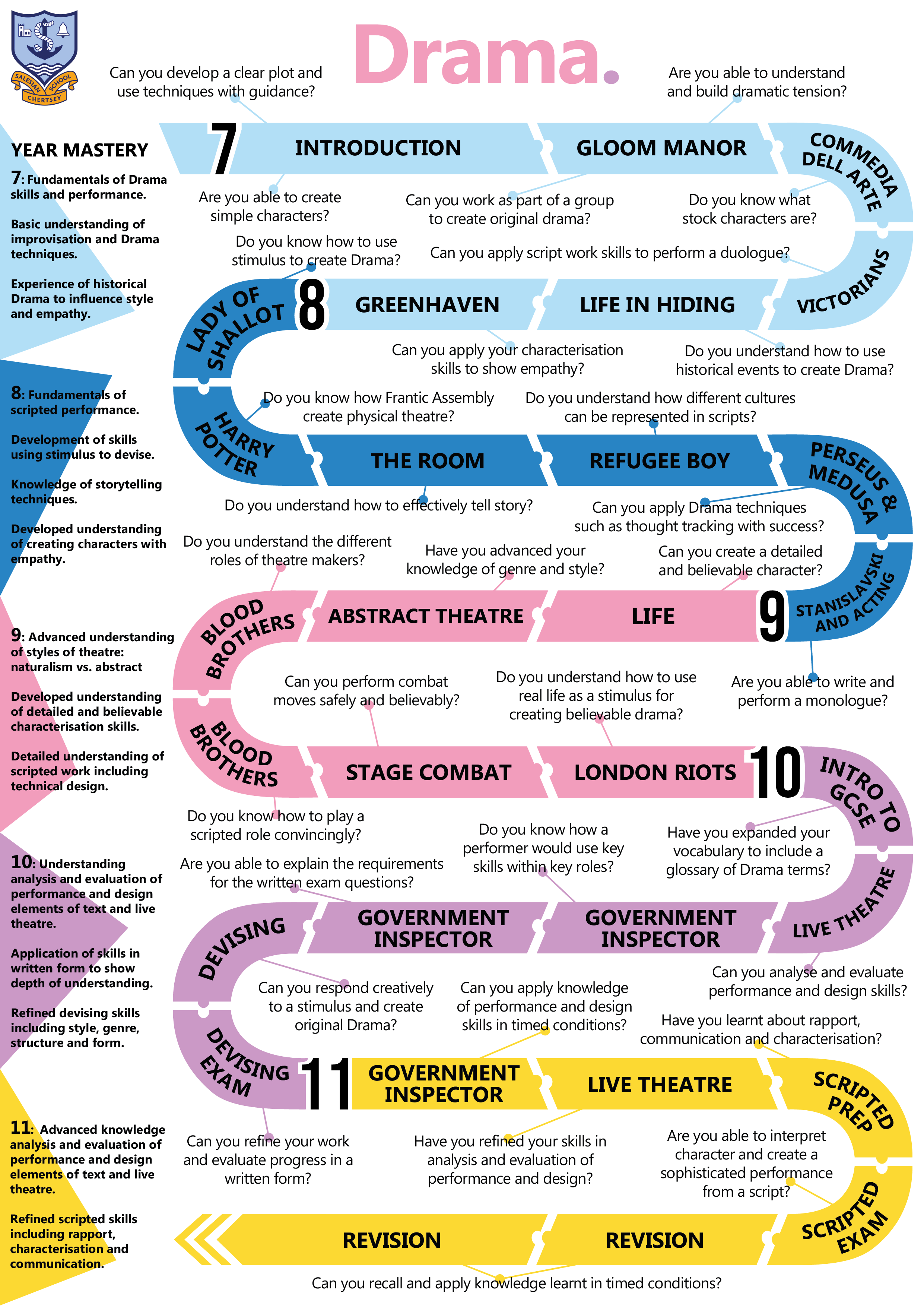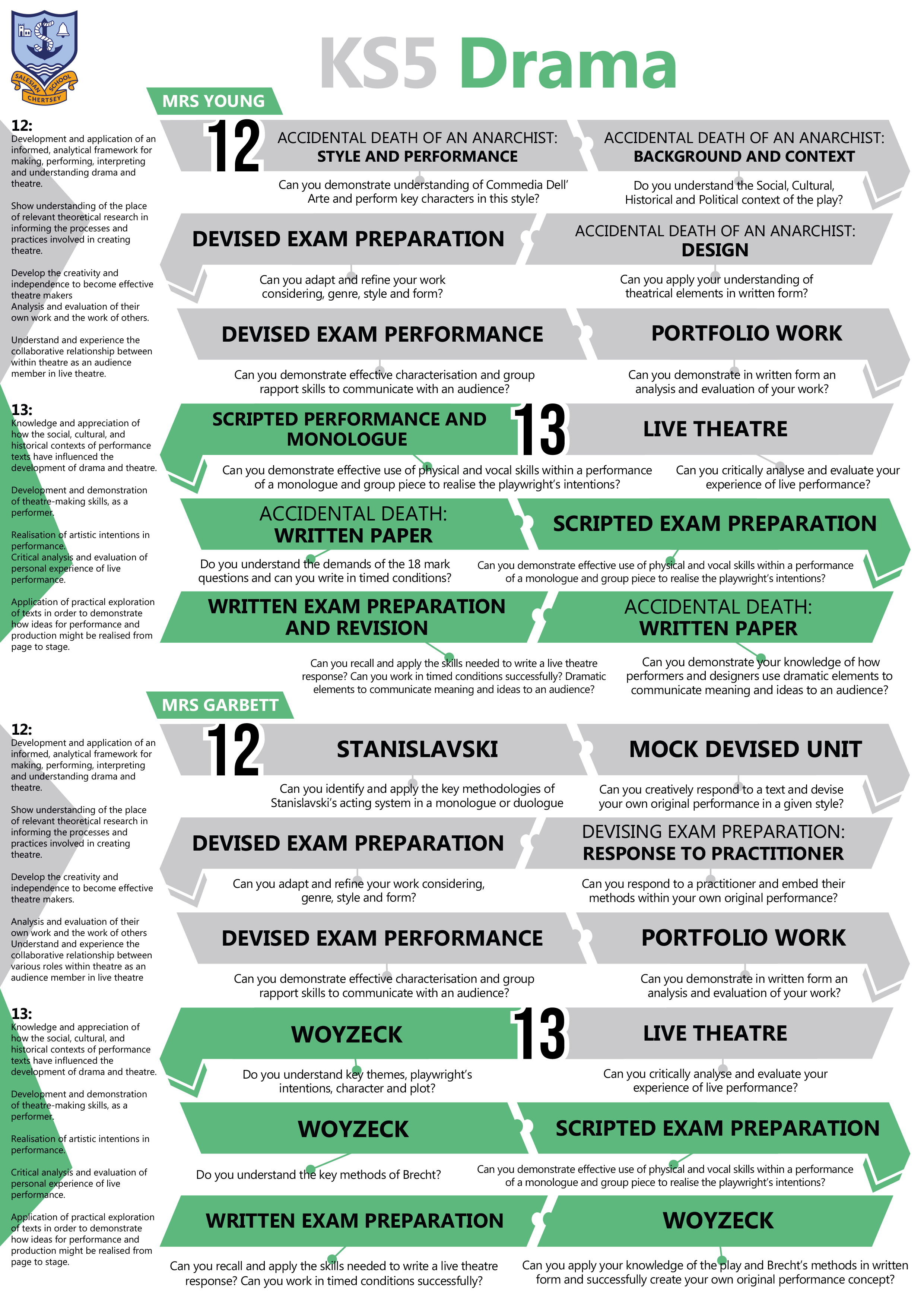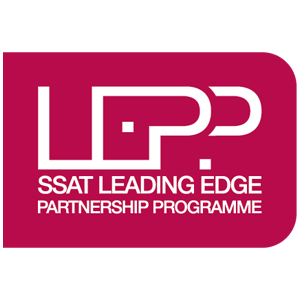At Key Stage 3 we teach the students the fundamental building blocks to creative, perform and evaluate practical work. We explore a wide range of topics looking at a broad range of styles such as Historical Drama, Storytelling, Scripted Drama, Naturalism and Abstract Theatre. Our aim is for students to become experts in using key skills and techniques, performing convincing roles, and showing awareness of genre and style. Students will learn how to self-reflect, collaborate and build their confidence; integral skills to carry forward in life. Our curriculum is supplemented by giving all students the opportunity to access live theatre and take part in school productions.
Key Stages 3, 4 & 5 Curriculum
For GCSE we study the Edexcel specification. The course builds upon the fundamental skills from Key Stage 3 and allows students to devise their own original Drama from stimuli. This component allows them to develop leadership and communication skills, whilst expanding their range and confidence as performers. Students develop their skills in analysis through the study of the set text ‘Government Inspector’ by Gogol, building towards a written exam where they will be able to write from the perspective of performer, director and designer. Having visited the theatre at least twice across the GCSE course, they will be able to appreciate the work of different theatre makers and comprehensively deconstruct a performance through analysis and evaluation. The skills developed at Key Stage 4 will prepare them for success at Drama A level should they continue with their studies in the area.
Through the study of the Edexcel Drama and Theatre specification, students will be introduced to a wide range of theatre practitioners such as Stanislavski, Brecht, Artaud and Berkoff. They will learn how to apply these methods in their own work, building towards a level of sophistication, as they devise in a chosen style considering structure and form. Live theatre is an integral part of the course and they will learn how to develop a critical and perceptive approach when analysing and evaluating performances seen. Through the study of two contrasting set texts, they will build their skills in writing from the perspective of performer, director and designer, and have the chance to imagine a staged production of their own making. By the end of the course, students will have deepened their knowledge of how to create and perform thought-provoking and didactic theatre.















